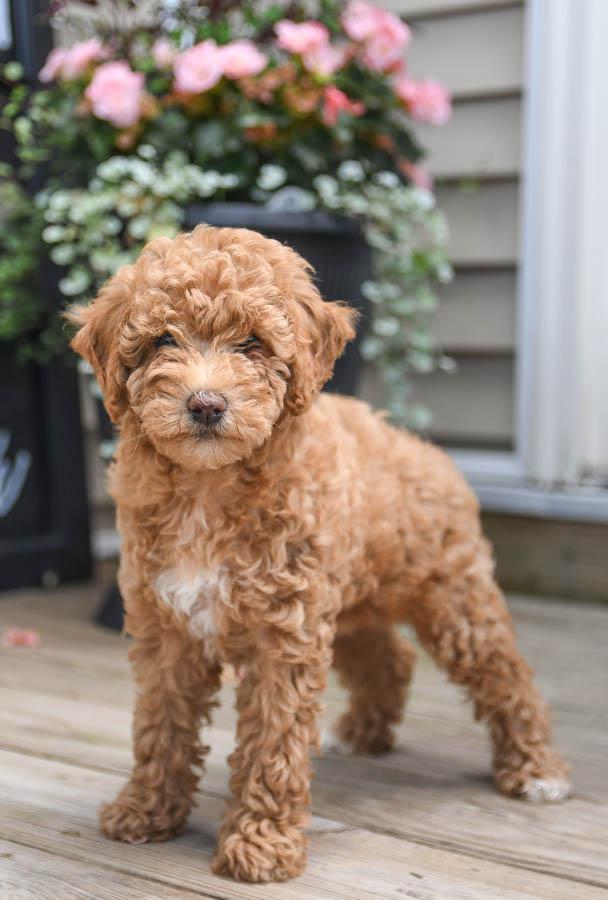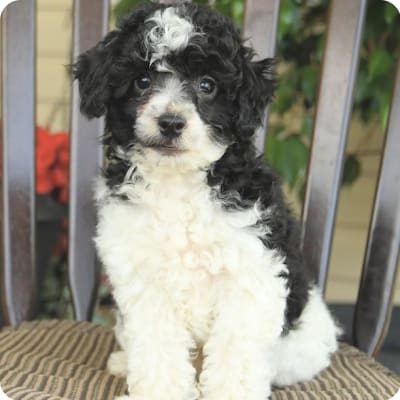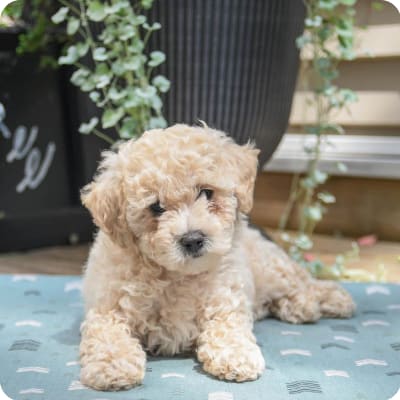Toy Poodle Puppies

A loyal and intelligent breed with a big personality
The Toy Poodle is the smallest out of the Poodle breeds, but don't let its tiny size fool you! These pups are full of spunk and energy, and they are quite athletic for a toy breed. Toy Poodles are known to love people and form strong bonds with their families.
Toy Poodle At a Glance




Toy Poodle At a Glance
- Size: Under 10", 4-6 lbs.
- Lifespan: 10-18 years
- Energy Level: high
- Coat: Curly, dense, and harsh-textured
- Shedding: light
- Hypoallergenic: Yes
- Dog Group: Toy
- Common Nicknames: Pudelhund, Caniche
Toy Poodle Breed Guide
Learn More About Toy Poodles


